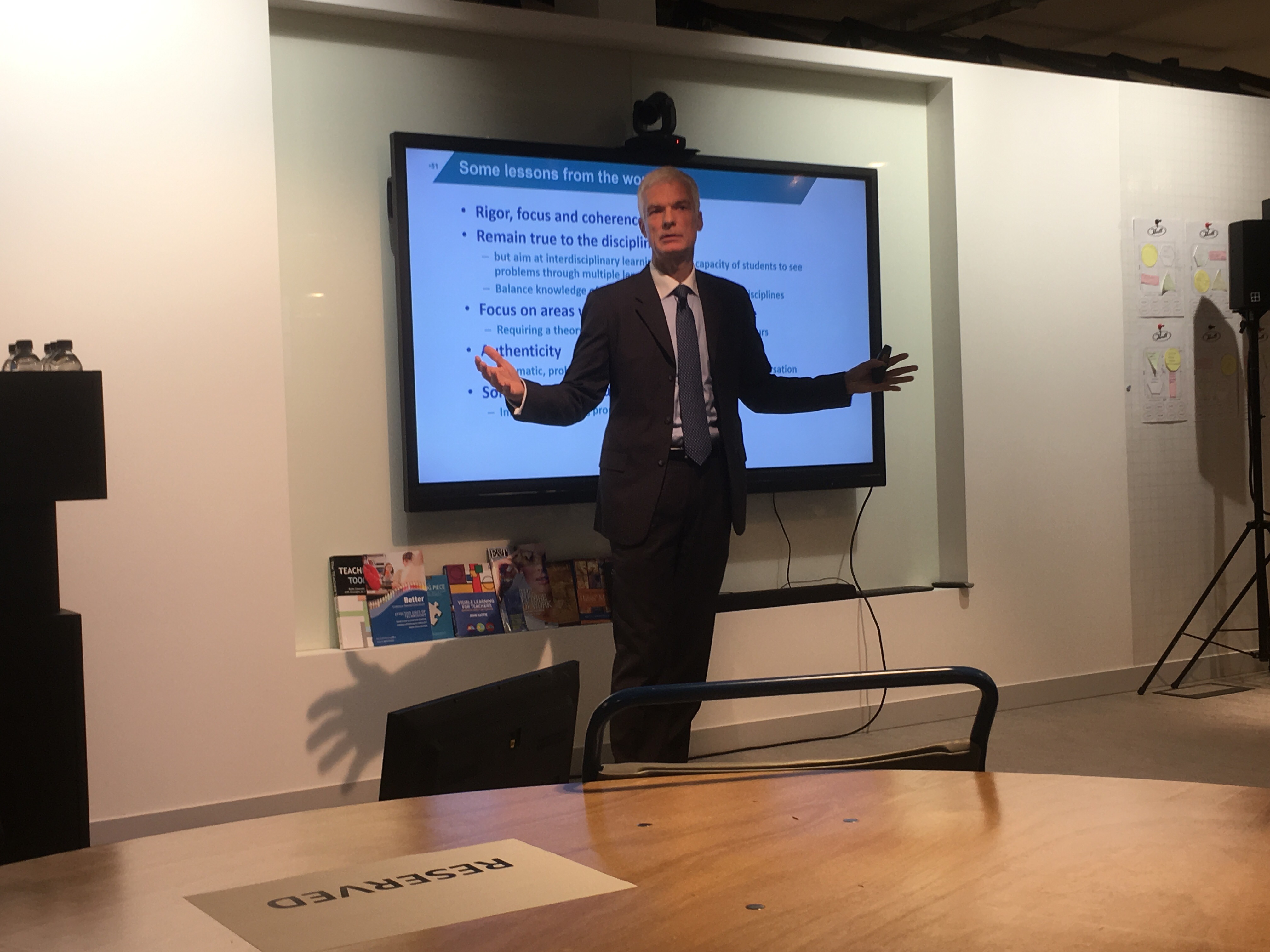Learning is not a place but an activity.
Thursday Prof Andreas Schleicher officially opened OneSchool UK’s Teacher Academy, Warwick. As Headteacher, at OneSchool’s Hindhead Campus, we were invited and I for one, was more than an little excited.
Education is awash with statistics. The DfE and inspectorate, more often than not, largely base their judgments of schools upon the messages they derive from school data and how well schools use it. Head teachers and Principals are held accountable by that data, and together with their senior leadership teams, are expected to purposeful, decisively and intelligently employ that data to lead and develop their schools. One step further back and above the numerous national data frameworks, presides PISA. A triennial international survey which aims to evaluate education systems worldwide by testing the skills and knowledge of 15-year-old students. Big data. The man in charge, Andreas Schleicher.
Andreas Schleicher is at heart, a scientist, a physicist, who originally worked in medical research. You can hear that core connection when he laments that somehow, the sense of wonder is lost from the science discipline, as students progress towards their examination years. Listen to the soft enthused infliction in his voice here, we heard it on Thursday also. At PISA, he is also a statistician.
Fourth graders in school – they’re all enthusiastic about science, no? They love science experimentation, trying, observing things, finding cause and effect. You look at this at age 15, at the PISA age, and students hate science now – because we have made these kind of crazy shadows [subjects of themselves] it has become formulas, equations. And the reactionist you know, we’ve just put more and more and more things into this box.
Few are able to interpret and articulate “big data” as well as Andreas Schleicher does, with the exception of the late Hans Rosling perhaps. Andreas Schleicher is well informed, evidenced based however, not without intelligent questions of the data. For 30 minutes I was transfixed by his lecture even having listened to similar presentations a handful of times previously.
Opening
Education is very inward looking.
Globally, there is an increasing premium on the higher thinking skills.
Time is passing quickly, “Amazon was once a river, tweets the sounds of birds…” a retrospective look. Warnings of the future skill requirements were proposed.
Hard messages
Social disadvantage, “poverty is destiny” means something very different, in different international settings. Education can do much to leverage talent.
What teachers told PISA they uphold as good teaching, is not what actually happens in their classrooms. He challenged a number of global myths or negative stereotypes, particularly around east Asian education, China, Singapore.
Most OECD countries are already well beyond the point where just “spending more of the same” is going to give you better results. Only 8% of the performance variation of OECD countries performance is attributed to spending per student.
How you invest your resources, that is the big predictor.
The promise of education as a big equaliser, is not true. The reality is often you come out worse, more unequal, than we go into education. At a global level, education is not only inequitable, it is ineffective.
Andreas explored the student-teacher ratios and directed teaching allocation.It was fascinating; in this flybe, he also commented on the importance of continuous professional development and initial teaching training.
On professional development Andreas Schleicher gave a range of innovative examples. Creating teacher collective ownership and innovative peer review (Shanghai), promoting professional autonomy and collaborative culture (Estonia), moderated, professional learning communities (Singapore).
Andreas Schleicher also emphasised the importance of a range of teacher activities, jointly teaching, more they observe other classes1 the more they engage in joint activities, take part in professional learning, collaborative professional learning, the greater their sense of effectiveness. Driving practice, efficacy and job satisfaction. The combination of autonomy and collaboration, is the biggest predictor of job satisfaction, not salaries, not class size. It is the kind of environment and work organisation.
It is not what you know, but what you do with what you know.
Wider watching
From previous presentations, I can remember a cautionary word around the use of digital technology. In our schools, digital investment seems to do more harm than good. He inferred that this may be due to a delivery mismatch, that the teaching strategies have not evolved? My initial thoughts centred on the allocation of capital resource.
3 out of 4 teacher perceive their school to be adverse to innovation.
In the more successful education states, there is an align of policies. Education has achieved a non-partisan status.
Education is able to produce higher life satisfaction and high education outcomes.
The UK features in last place, when PISA explored elaboration strategies for teaching.
Next stop
Save the date. Nov 21st OCED release the results of Collaborative Problem Solving international.
A real privilege.
1In contrast to the recent EFF report.


